
Mwanza: The Rock City by Lake Victoria
Mwanza, often referred to as the 'Rock City,' is a hidden gem in Tanzania, located on the southern shores of Lake Victoria. As you arrive, you'll be greeted by the stunning sight of massive granite rock formations that define the city’s unique landscape. Mwanza’s natural beauty is complemented by its warm and welcoming people, making it a must-visit destination for any traveler seeking an authentic Tanzanian experience. The city is not just about its rocks; it’s a vibrant urban center with a rich cultural heritage. Take a stroll through the bustling markets, where you can find everything from fresh produce to handmade crafts. The local cuisine, heavily influenced by the lake, offers delicious and fresh fish dishes that you must try. Mwanza is also home to several historic buildings and landmarks that provide a glimpse into the region’s past. Nature lovers will be thrilled by the array of outdoor activities available. Lake Victoria offers excellent opportunities for fishing, boating, and bird watching. The nearby Saanane Island National Park is perfect for a day trip, where you can enjoy a picnic while spotting various wildlife. For those interested in a more extensive adventure, the Serengeti National Park is just a few hours’ drive away, making Mwanza an ideal starting point for a safari. Whether you’re in Mwanza for its natural beauty, cultural experiences, or as a gateway to other Tanzanian attractions, this city promises a memorable visit. Its blend of urban charm and natural wonders ensures that there’s something for everyone.
Local tips in Mwanza
- Visit the bustling local markets early in the morning to experience the vibrant atmosphere and get the freshest produce.
- Try the local fish dishes, especially the tilapia, which is a staple in Mwanza’s cuisine.
- Plan a day trip to Saanane Island National Park for a picnic and wildlife spotting.
- Wear comfortable shoes if you plan to explore the rock formations around the city.
- Consider Mwanza as a starting point for a safari to the Serengeti National Park, which is just a few hours’ drive away.
Mwanza: The Rock City by Lake Victoria
Mwanza, often referred to as the 'Rock City,' is a hidden gem in Tanzania, located on the southern shores of Lake Victoria. As you arrive, you'll be greeted by the stunning sight of massive granite rock formations that define the city’s unique landscape. Mwanza’s natural beauty is complemented by its warm and welcoming people, making it a must-visit destination for any traveler seeking an authentic Tanzanian experience. The city is not just about its rocks; it’s a vibrant urban center with a rich cultural heritage. Take a stroll through the bustling markets, where you can find everything from fresh produce to handmade crafts. The local cuisine, heavily influenced by the lake, offers delicious and fresh fish dishes that you must try. Mwanza is also home to several historic buildings and landmarks that provide a glimpse into the region’s past. Nature lovers will be thrilled by the array of outdoor activities available. Lake Victoria offers excellent opportunities for fishing, boating, and bird watching. The nearby Saanane Island National Park is perfect for a day trip, where you can enjoy a picnic while spotting various wildlife. For those interested in a more extensive adventure, the Serengeti National Park is just a few hours’ drive away, making Mwanza an ideal starting point for a safari. Whether you’re in Mwanza for its natural beauty, cultural experiences, or as a gateway to other Tanzanian attractions, this city promises a memorable visit. Its blend of urban charm and natural wonders ensures that there’s something for everyone.
When is the best time to go to Mwanza?
Iconic landmarks you can’t miss
Rock City Mall
Explore Rock City Mall in Mwanza – the ultimate shopping and entertainment destination that blends local culture with modern conveniences.
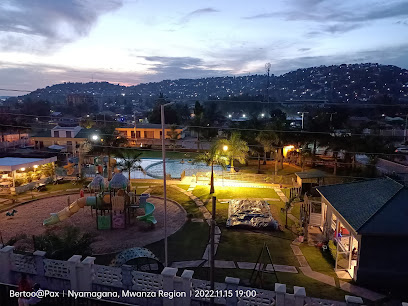
Malaika Beach Resort
Discover tranquility and luxury at Malaika Beach Resort, a perfect getaway along Lake Victoria in Mwanza, Tanzania, blending nature and comfort seamlessly.

Bismarck Rock
Discover the breathtaking beauty of Bismarck Rock, a natural wonder in Lake Victoria, Mwanza, perfect for adventure and unforgettable experiences.
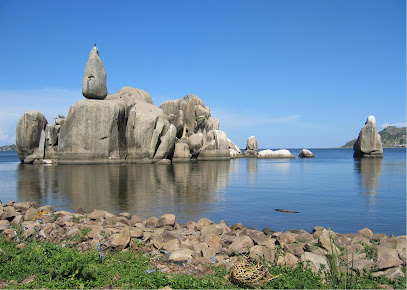
Samaki Corner
Explore the vibrant history and culture at Samaki Corner, a historical landmark in Mwanza with stunning views of Lake Victoria.
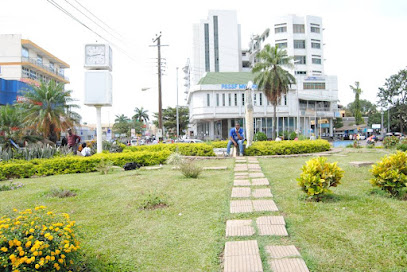
Tunza Resort
Discover the tranquil beauty of Tunza Resort, a public beach paradise on Lake Victoria in Mwanza, Tanzania, perfect for relaxation and adventure.
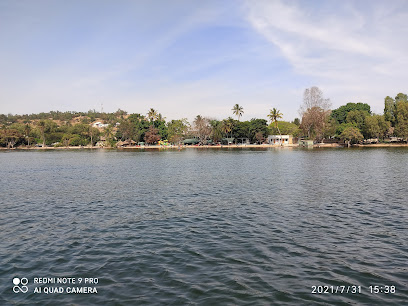
Mkuyuni Market
Discover the bustling atmosphere and local flavors at Mkuyuni Market in Mwanza, a must-visit destination for tourists seeking authentic Tanzanian experiences.
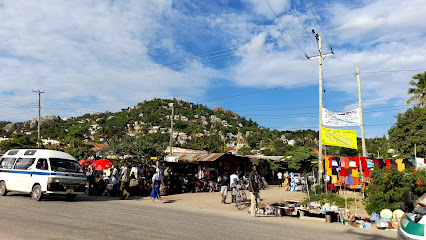
Saanane National Park
Explore the serene beauty and diverse wildlife of Saanane National Park in Tanzania, a hidden gem for nature enthusiasts and adventure seekers.
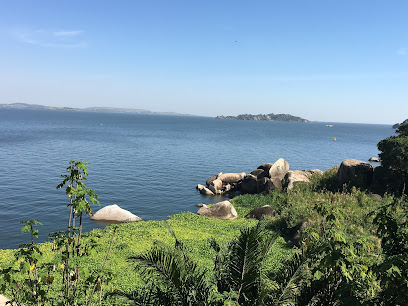
Nata Bus Offices/Old Stand
Explore Mwanza with ease from the Nata Bus Offices, your gateway to the stunning landscapes and vibrant culture of Tanzania.
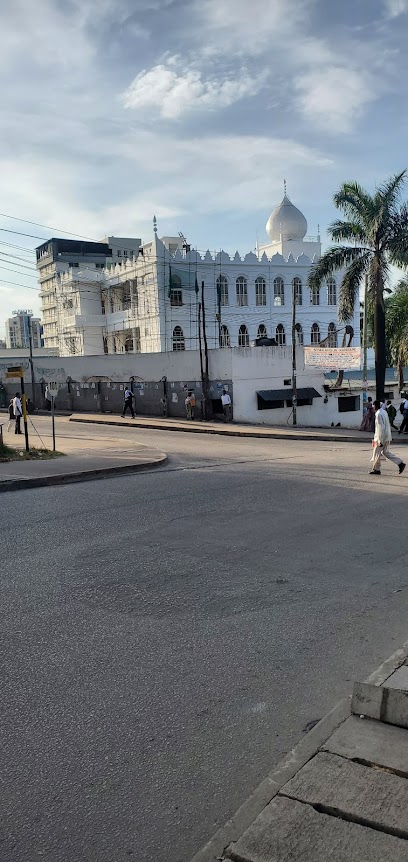
Mwaloni Market
Explore the vibrant Mwaloni Market in Mwanza, Tanzania, where fresh fish and local culture come together for an unforgettable market experience.
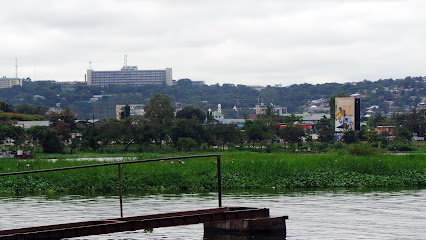
Nyasaka Centre
Explore the vibrant Nyasaka Centre in Mwanza for an authentic Tanzanian market experience filled with local culture, cuisine, and crafts.
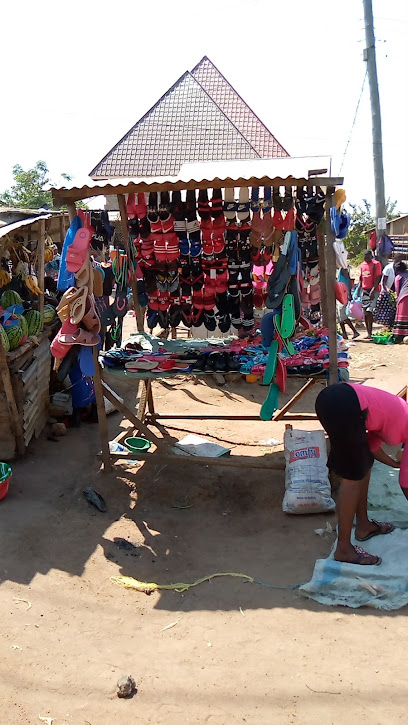
Alpha Fun Theme Park
Experience endless fun at Alpha Fun Theme Park in Mwanza, where thrilling rides and vibrant entertainment await families and adventure seekers.
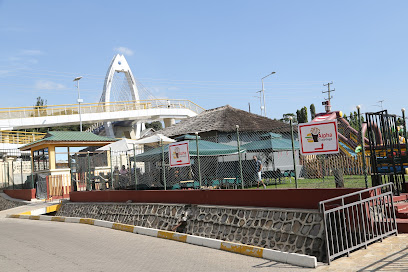
Bujora Cultural Centre and Sukuma Museum
Explore the vibrant art and cultural heritage of the Sukuma people at the Bujora Cultural Centre and Sukuma Museum in Tanzania.
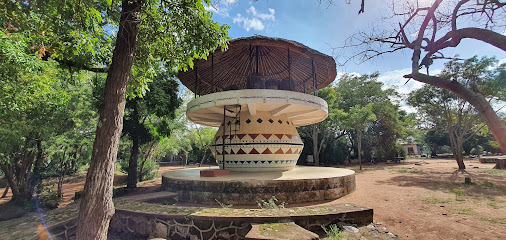
Kamanga Ferry Terminal
Discover the stunning views and vibrant atmosphere at Kamanga Ferry Terminal, your gateway to exploring Lake Victoria's enchanting islands.
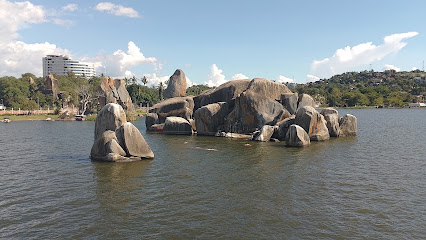
Kiloleli - Masjid
Discover the tranquil beauty of Kiloleli Mosque in Mwanza, a cultural landmark offering insights into Tanzania's rich Islamic heritage amidst serene surroundings.
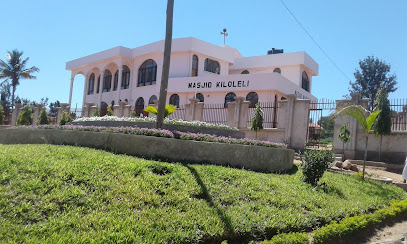
Dolphin Tours & Safaris Ltd
Explore the breathtaking beauty of Mwanza with Dolphin Tours & Safaris Ltd, your gateway to unforgettable dolphin encounters and scenic lake adventures.
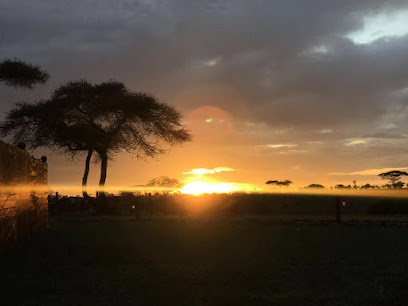
Unmissable attractions to see
Bismarck Rock
Explore Bismarck Rock in Mwanza, Tanzania - a stunning natural landmark offering breathtaking views, rich history, and serene experiences by Lake Victoria.
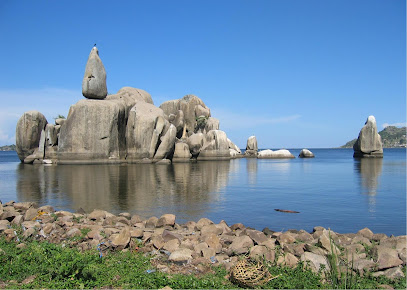
Samaki Corner
Explore the rich history and natural beauty of Mwanza at Samaki Corner, a captivating landmark by Lake Victoria that embodies local culture.
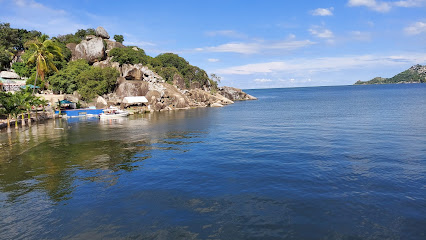
Rock Beach Garden
Experience the tranquil beauty of Rock Beach Garden on Lake Victoria, a perfect retreat for relaxation and leisure activities.
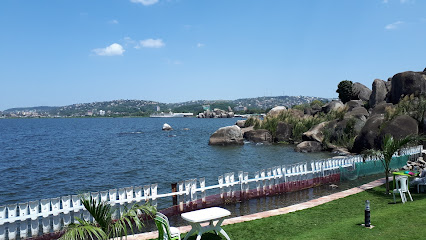
Tunza Resort
Experience the beauty and tranquility of Tunza Resort, a perfect public beach destination for relaxation and adventure in Mwanza, Tanzania.
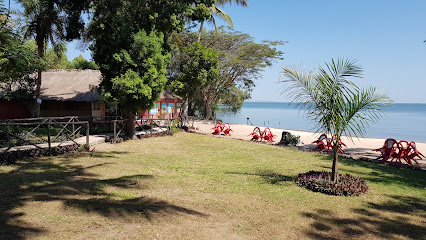
Alpha Fun Theme Park
Experience the excitement of Alpha Fun Theme Park in Mwanza, where adventure and fun await visitors of all ages.
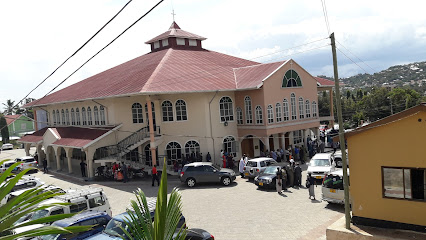
Bujora Cultural Centre and Sukuma Museum
Explore the rich cultural heritage of Tanzania at the Bujora Cultural Centre and Sukuma Museum, a vibrant hub of art, history, and local traditions.
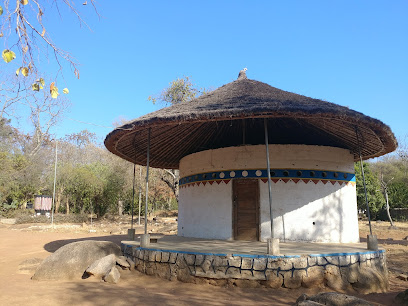
Old Capri Cabana
Experience tranquility at Old Capri Cabana, Mwanza's serene city park, where nature and local culture blend beautifully.
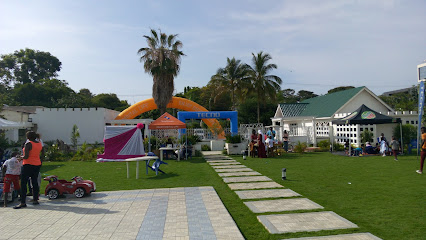
Park And Garden
Discover the tranquility of Mwanza's Park And Garden, a lush retreat for relaxation, family fun, and nature exploration.
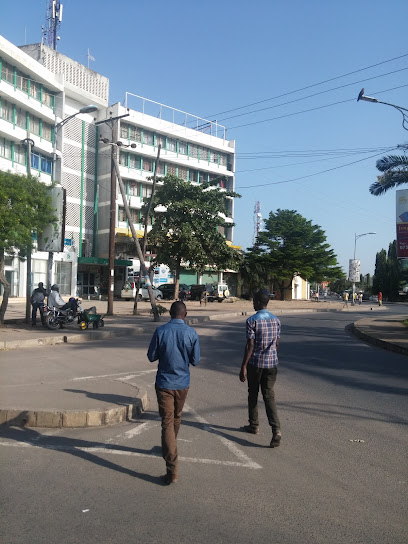
Saanane National Park HQ
Explore the stunning landscapes and diverse wildlife of Saanane National Park, a tranquil paradise on Lake Victoria perfect for nature lovers.
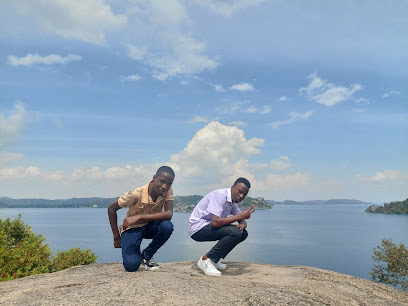
MV Bukoba Monument
Explore the MV Bukoba Monument in Mwanza, a poignant historical landmark that honors the legacy of the MV Bukoba ferry tragedy with stunning views of Lake Victoria.
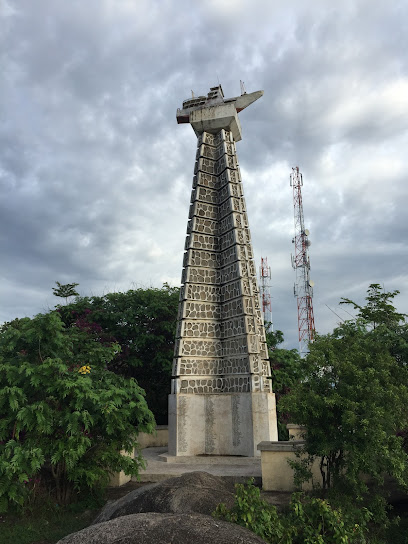
Kassa Zoo
Explore Kassa Zoo in Isangijo, Tanzania – a vibrant park showcasing diverse wildlife amidst stunning natural beauty.
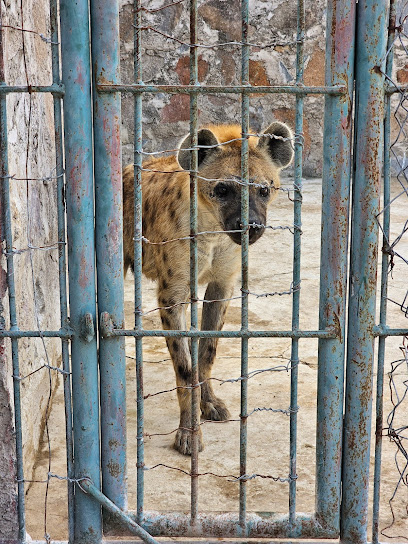
mkolani
Explore Mkolani, a captivating tourist attraction in Tanzania, where culture, nature, and unforgettable experiences await every traveler.
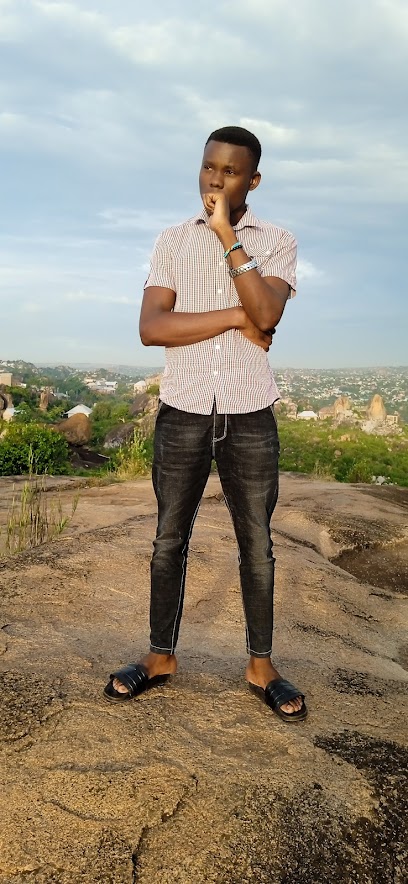
Kamanga Garden Beach
Experience the tranquility and natural beauty of Kamanga Garden Beach, a serene escape on the shores of Lake Victoria in Mwanza, Tanzania.
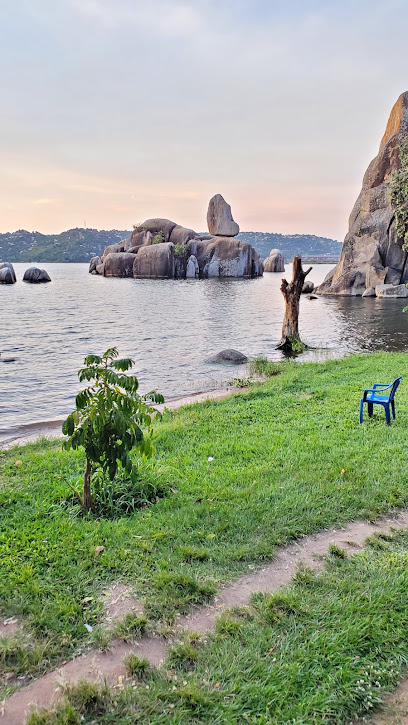
Nyakahoja Beach
Discover the tranquil beauty of Nyakahoja Beach in Kibandani, a serene escape for sunbathers and adventure seekers alike, offering stunning views and rich marine life.
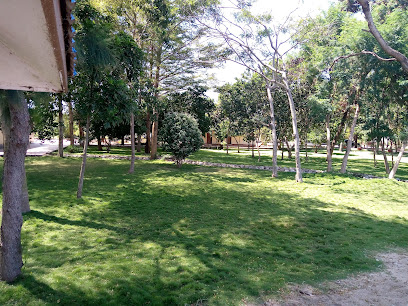
Bwiru Ziwani
Discover the serenity of Bwiru Ziwani in Mwanza, a beautiful garden oasis perfect for relaxation and nature photography.
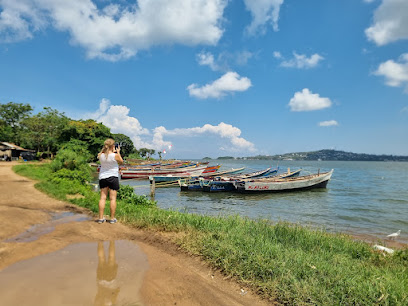
Essential places to dine
The Cask Bar & Grill
Discover the vibrant culinary scene at The Cask Bar & Grill in Mwanza, where delicious grilled dishes meet refreshing drinks in a lively atmosphere.
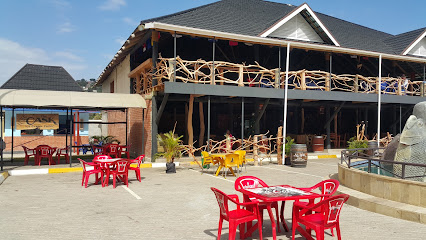
BONASERA Grill House
Discover BONASERA Grill House: A culinary haven in Mwanza offering exquisite local and international dishes with stunning outdoor dining.
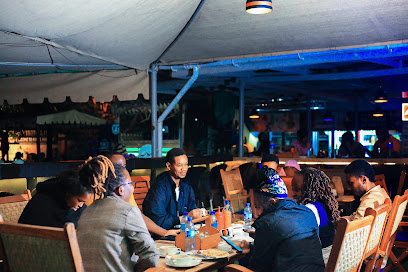
Salma Cone
Experience authentic Tanzanian cuisine at Salma Cone in Mwanza - where every meal tells a story.
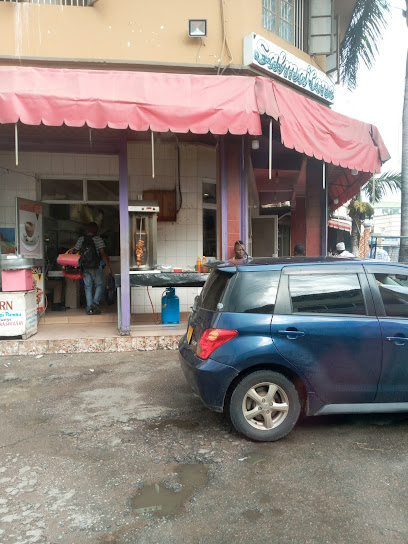
Al Muzzammil Cafe
Discover the flavors of Tanzania at Al Muzzammil Cafe – a must-visit restaurant in Mwanza offering diverse cuisines in a welcoming atmosphere.
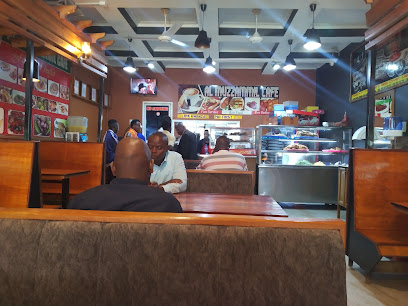
ShahenshaRestaurant
Experience authentic Tanzanian cuisine at Shahensha Restaurant in Mwanza – where every dish tells a story.
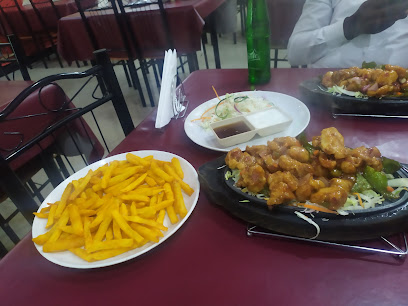
HASFU FOOD EMPIRE
Experience authentic Tanzanian cuisine at Hasfu Food Empire in Mwanza – where every dish tells a story.
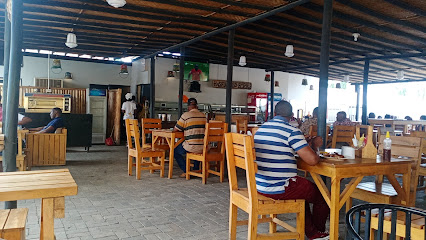
Cafe Mambo
Discover the vibrant flavors of Tanzania at Cafe Mambo in Mwanza – where coffee culture meets culinary delight.
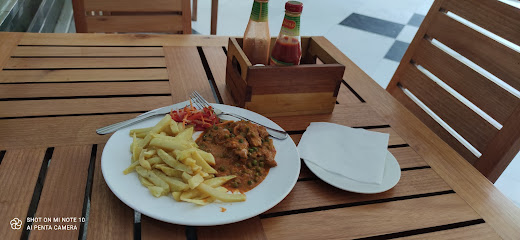
Kuleana Pizza Restaurant
Discover delicious pizzas and local cuisine at Kuleana Pizza Restaurant in Mwanza - where taste meets tradition!
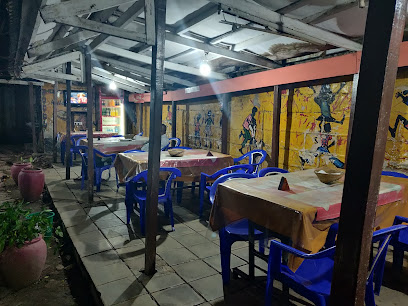
Kijiji bar & grill
Discover the vibrant flavors of Mwanza at Kijiji Bar & Grill – where local cuisine meets warm hospitality.
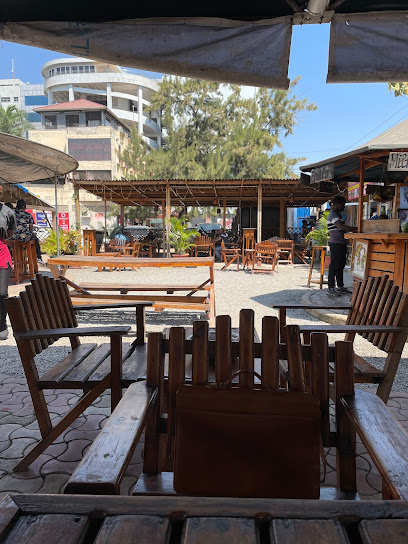
AMAZON
Savor authentic Tanzanian grilled dishes at Amazon Grill in Mwanza – where vibrant flavors meet warm hospitality.
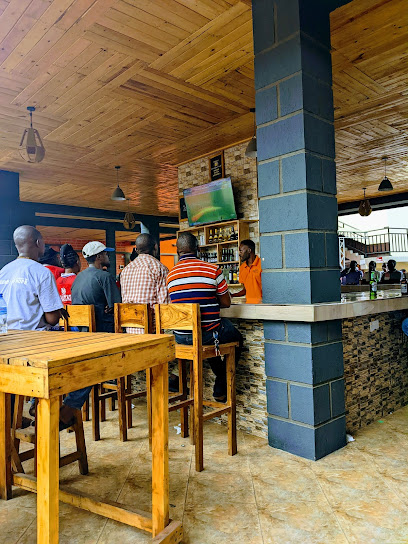
Lakairo Restaurant
Experience authentic Tanzanian cuisine at Lakairo Restaurant in Mwanza – where every dish tells a story.
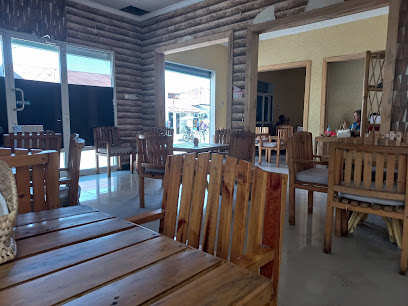
Priya's Place
Experience authentic Tanzanian cuisine and global flavors at Priya's Place – where every meal tells a story.
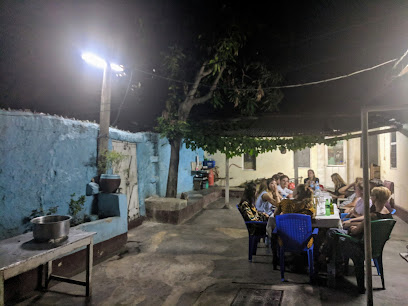
Chicken Run Bar and Grill
Experience the best of Tanzanian cuisine at Chicken Run Bar and Grill in Mwanza—where delicious grilled flavors meet vibrant ambiance.
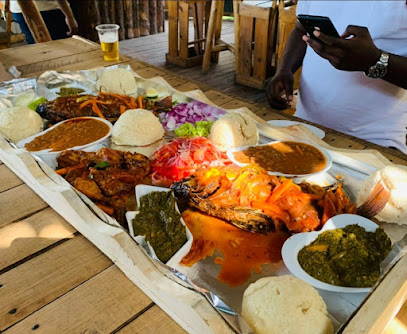
Mo & Pragz Kitchen
Experience the best of African and international cuisine at Mo & Pragz Kitchen in Mwanza – where every meal is a celebration of flavor.
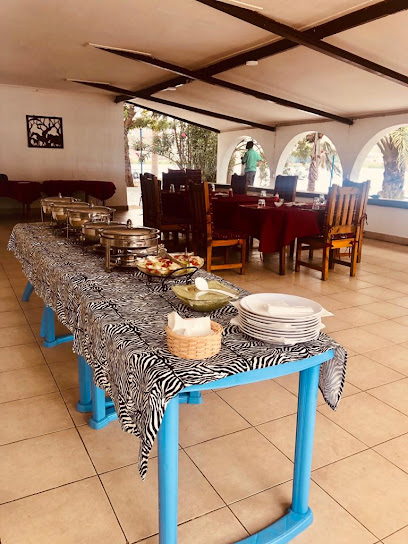
Vanilla Restaurant
Discover authentic Tanzanian cuisine at Vanilla Restaurant in Mwanza—where every meal is a celebration of local flavors.
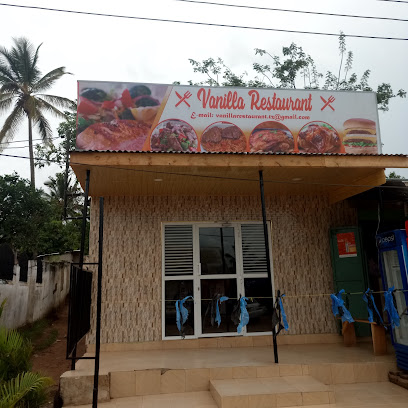
Markets, malls and hidden boutiques
Rock City Mall
Explore Mwanza's Rock City Mall - a vibrant shopping haven with diverse stores, delectable dining, and exciting entertainment options.
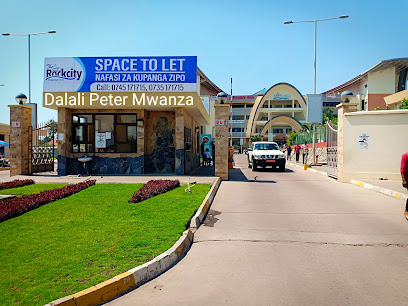
Vunjabei fashion store mwanza
Explore vibrant styles and local designs at Vunjabei Fashion Store in Mwanza, Tanzania - a treasure trove for fashion enthusiasts and tourists alike.
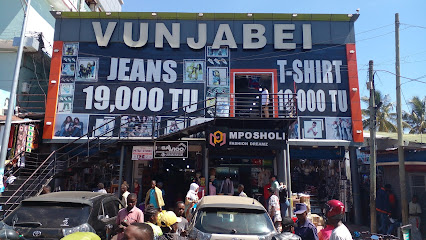
Little More
Explore Little More in Mwanza for a unique shopping experience filled with local crafts, souvenirs, and a taste of Tanzanian culture.
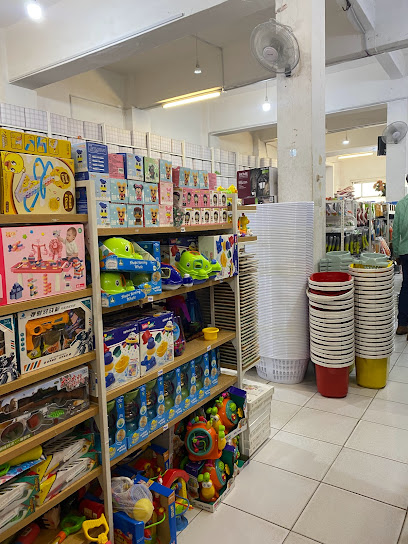
Discount Centre Mwanza
Explore the vibrant shopping experience at Discount Centre Mwanza - a treasure trove of home goods and local craftsmanship.
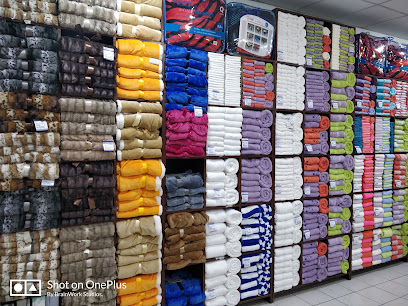
Jeansspot_store_mwanza
Explore vibrant fashion at Jeansspot Store Mwanza - where trendy styles meet affordability in the heart of Tanzania.
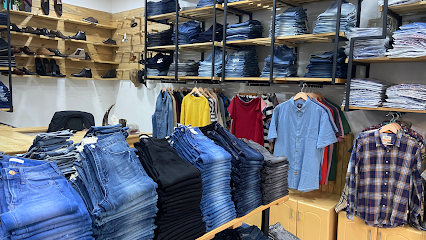
Ukombozi Mwanza
Explore Ukombozi Mwanza for a delightful shopping experience filled with unique home goods and authentic Tanzanian craftsmanship.
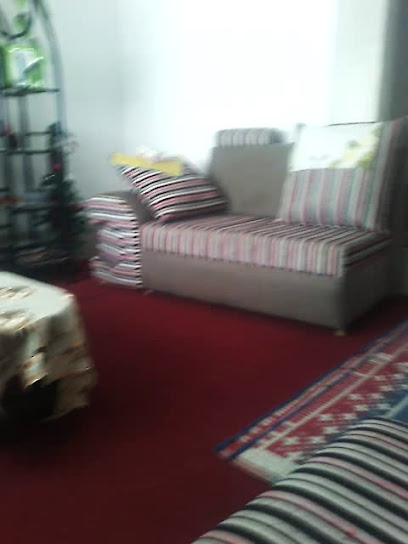
Marissa scents
Experience the elegance of Marissa Scents in Mwanza, where every fragrance tells a story and personalizes your olfactory journey.
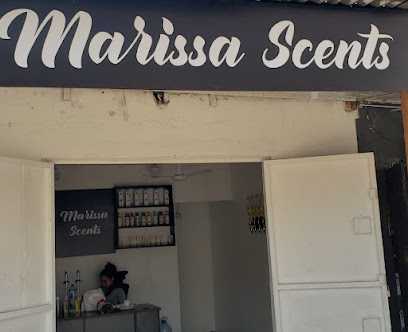
Kanzu Mashaallah Mwanza
Explore the vibrant cultural essence of Tanzania through unique clothing at Kanzu Mashaallah Mwanza, a must-visit destination for every traveler.
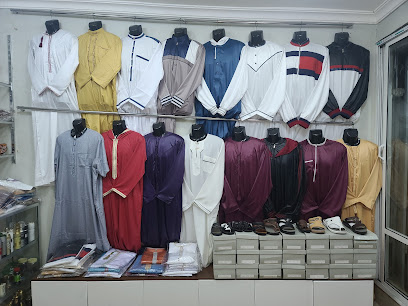
G Quality Store
Explore G Quality Store in Mwanza for unique clothing that blends local culture with modern fashion trends. A must-visit for every style-savvy traveler.

Unique Stylish Store
Explore the Unique Stylish Store in Mwanza for trendy clothing that combines modern fashion with traditional Tanzanian flair, a true gem for every traveler.
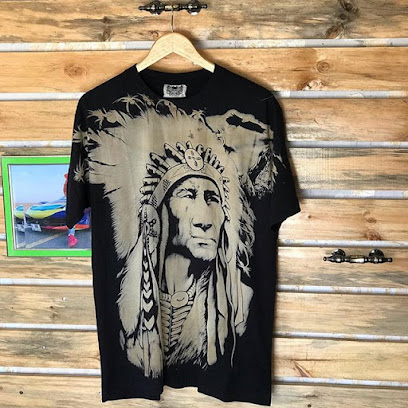
Kicks Republic Mwanza
Explore the ultimate shoe and apparel destination at Kicks Republic Mwanza, where style meets comfort in the heart of Tanzania.
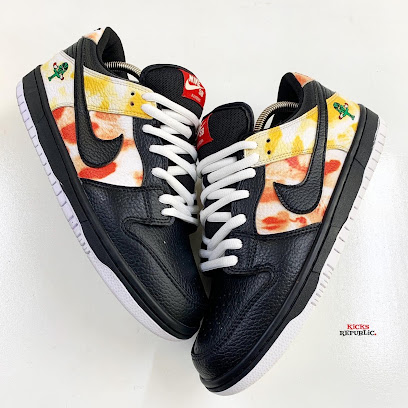
Pure Tanzanite Gem shop
Explore the Pure Tanzanite Gem Shop at Malaika Beach Resort for exquisite jewelry and unique Tanzanian craftsmanship.
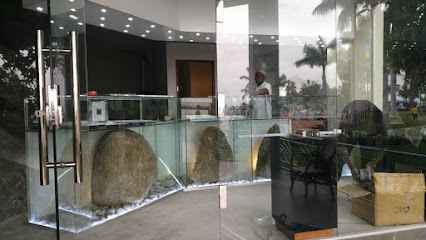
Madukani John Fashion
Explore traditional and contemporary Tanzanian fashion at Madukani John Fashion in Mwanza, where style meets culture in vibrant clothing selections.

Husseins Gift Shop
Explore Hussein's Gift Shop in Mwanza for unique souvenirs and local crafts that embody the spirit of Tanzania.

Maduka Online Retail Store
Explore Maduka Online Retail Store in Mwanza for an unforgettable shopping experience featuring local clothing, baby apparel, and stylish shoes.

Essential bars & hidden hideouts
The Cask Bar & Grill
Discover the vibrant culinary scene at The Cask Bar & Grill in Mwanza, where delicious food and a lively atmosphere create unforgettable dining experiences.
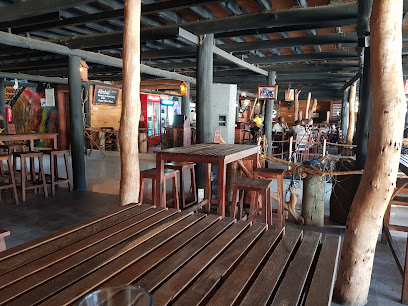
Bundesliga Bar and Guest House
Discover the lively Bundesliga Bar and Guest House in Mwanza, where local flavors and a vibrant atmosphere await every traveler.
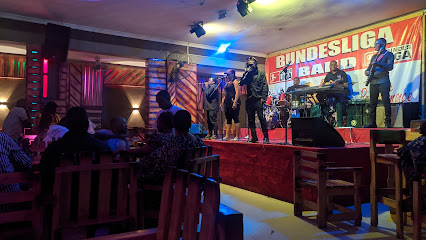
MALAIKA BEACH
Discover the beauty and tranquility of Malaika Beach in Mwanza, Tanzania—a perfect blend of relaxation, adventure, and cultural exploration.
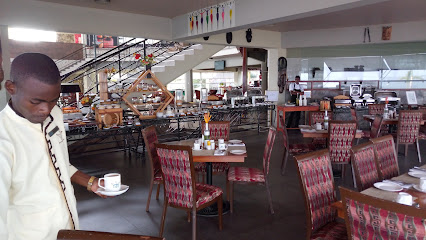
Kijiji bar & grill
Discover Mwanza's vibrant dining scene at Kijiji Bar & Grill, where local flavors and lively ambiance come together for a memorable experience.
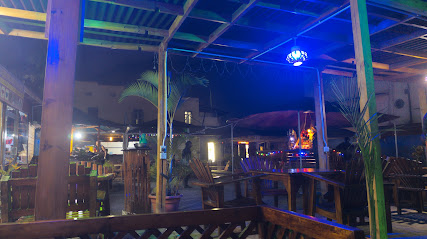
New Royal Pub
Discover the lively atmosphere of New Royal Pub in Mwanza, where delicious food and refreshing drinks meet vibrant local culture.
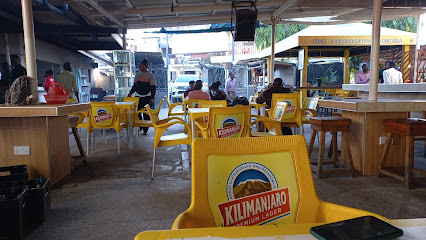
The fogo pub
Experience the lively atmosphere and local culture at The Fogo Pub in Mwanza, a perfect spot for affordable drinks and socializing.
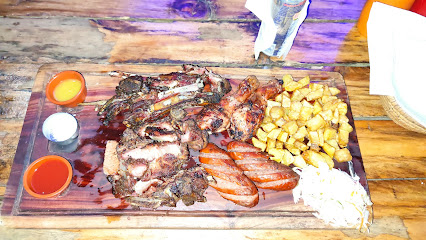
Chicken Run Bar and Grill
Experience Mwanza's vibrant dining scene at Chicken Run Bar and Grill, where delectable grilled dishes and refreshing drinks await every visitor.
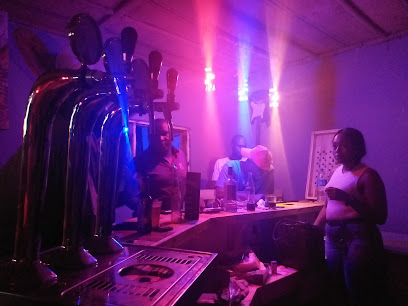
Akimi Sports Bar & Grill
Discover the lively ambiance of Akimi Sports Bar & Grill in Mwanza, where great food meets exciting sports and friendly locals.
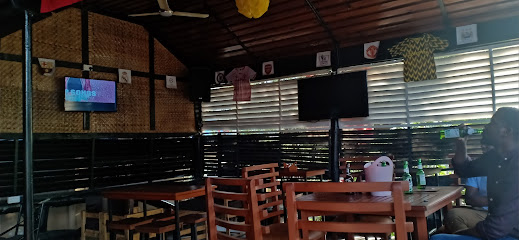
If Not, Why Not Bar
Discover Mwanza's vibrant nightlife at If Not, Why Not Bar, where great drinks, delicious food, and lively music come together for an unforgettable evening.
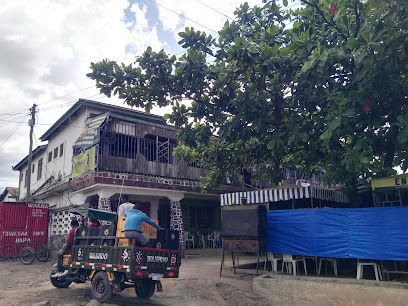
Biso & Biso Pub Mwanza
Discover the lively Biso & Biso Pub in Mwanza, offering local cuisine, refreshing drinks, and a vibrant atmosphere that captures the essence of Tanzanian hospitality.
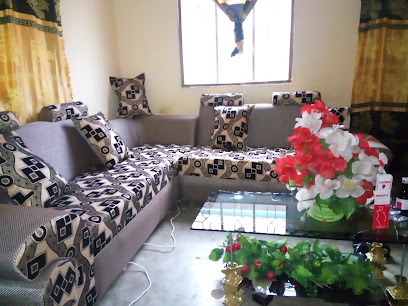
Jacque's Pub
Experience the lively atmosphere and diverse drink selection at Jacque's Pub, a top bar in Mwanza for locals and tourists alike.

Lumala Pub
Discover the lively ambiance and local flavors at Lumala Pub in Mwanza, where great drinks and good company await.
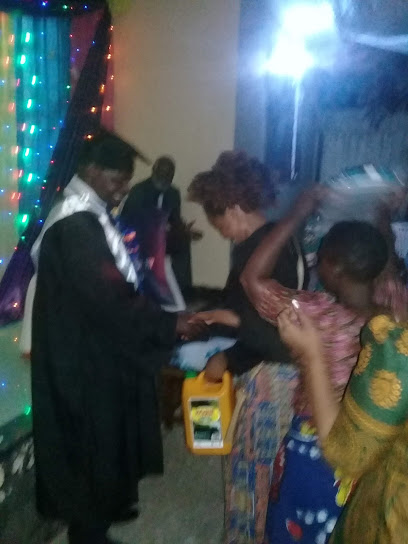
Bucket Bar & Grill
Discover Mwanza's local flavor at Bucket Bar & Grill, a vibrant pub offering delicious food and drinks in a welcoming atmosphere.
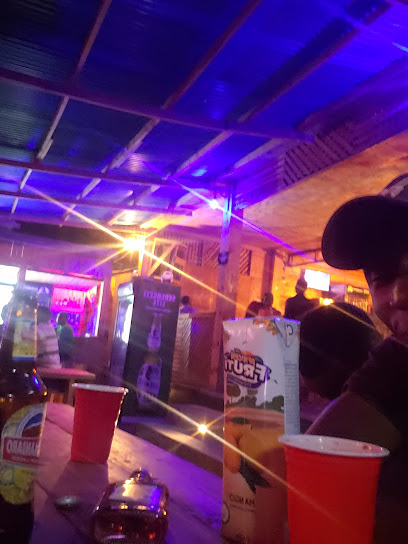
Jojoz Pub
Discover the lively Jojoz Pub in Mwanza, where local flavors meet vibrant nightlife in a welcoming atmosphere.
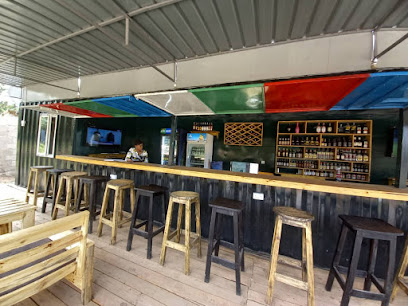
Local Phrases
-
- HelloJambo
[jahm-boh] - GoodbyeKwaheri
[kwah-heh-ree] - YesNdiyo
[uhn-dee-yoh] - NoHapana
[hah-pah-nah] - Please/You're welcomeTafadhali
[tah-fah-dhah-lee] - Thank youAsante
[ah-sahn-teh] - Excuse me/SorrySamahani
[sah-mah-hah-nee] - How are you?U hali gani?
[oo hah-lee gah-nee] - Fine. And you?Salama. Na wewe?
[sah-lah-mah. nah weh-weh] - Do you speak English?Unazungumza Kiingereza?
[oo-nah-zoon-goom-zah kee-een-geh-reh-zah] - I don't understandSielewi
[see-eh-leh-wee]
- HelloJambo
-
- I'd like to see the menu, pleaseNapenda kuona orodha, tafadhali
[nah-pehn-dah koo-oh-nah oh-roh-dhah, tah-fah-dhah-lee] - I don't eat meatSili nyama
[see-lee nyah-mah] - Cheers!Mambo!
[mahm-boh] - I would like to pay, pleaseNapenda kulipa, tafadhali
[nah-pehn-dah koo-lee-pah, tah-fah-dhah-lee]
- I'd like to see the menu, pleaseNapenda kuona orodha, tafadhali
-
- Help!Msaada!
[msah-ah-dah] - Go away!Ondoka!
[ohn-doh-kah] - Call the Police!Piga polisi!
[pee-gah poh-lee-see] - Call a doctor!Piga daktari!
[pee-gah dahk-tah-ree] - I'm lostNimepotea
[nee-meh-poh-teh-ah] - I'm illNinaumwa
[nee-nah-oom-wah]
- Help!Msaada!
-
- I'd like to buy...Napenda kununua...
[nah-pehn-dah koo-noo-noo-ah] - I'm just lookingNinaangalia tu
[nee-nah-ahn-gah-lee-ah too] - How much is it?Bei ni kiasi gani?
[beh-ee nee kee-ah-see gah-nee] - That's too expensiveHiyo ni ghali sana
[hee-yoh nee gah-lee sah-nah] - Can you lower the price?Unaweza kupunguza bei?
[oo-nah-weh-zah koo-poon-goo-zah beh-ee]
- I'd like to buy...Napenda kununua...
-
- What time is it?Saa ngapi?
[sah-ah ngah-pee] - It's one o'clockSaa moja
[sah-ah moh-jah] - Half past (10)Nusu kumi
[noo-soo koo-mee] - MorningAsubuhi
[ah-soo-boo-hee] - AfternoonMchana
[m-chah-nah] - EveningJioni
[joh-nee] - YesterdayJana
[jah-nah] - TodayLeo
[leh-oh] - TomorrowKesho
[keh-shoh] - 1Moja
[moh-jah] - 2Mbili
[m-bee-lee] - 3Tatu
[tah-too] - 4Nne
[n-neh] - 5Tano
[tah-noh] - 6Sita
[see-tah] - 7Saba
[sah-bah] - 8Nane
[nah-neh] - 9Tisa
[tee-sah] - 10Kumi
[koo-mee]
- What time is it?Saa ngapi?
-
- Where's a/the...?Iko wapi...?
[ee-koh wah-pee] - What's the address?Anwani ni ipi?
[ahn-wah-nee nee ee-pee] - Can you show me (on the map)?Unaweza kunionyesha (kwenye ramani)?
[oo-nah-weh-zah koo-nee-oh-nyeh-shah kweh-neh rah-mah-nee] - When's the next (bus)?Basi lijalo ni lini?
[bah-see lee-jah-loh nee lee-nee] - A ticket (to ....)Tiketi (kwenda ....)
[tee-keh-tee kwehn-dah]
- Where's a/the...?Iko wapi...?
History of Mwanza
-
Before the arrival of European colonizers, Mwanza was part of the vast Sukuma Kingdom. The Sukuma people, the largest ethnic group in Tanzania, were primarily agrarian and cattle herders. Their society was organized into clans, each with its own chief, and they practiced a form of decentralized governance.
-
In the late 19th century, Mwanza came under German colonial rule as part of German East Africa. The town's strategic location on the shores of Lake Victoria made it an important administrative and commercial center. During this period, the Germans built infrastructure, including the first roads and railways, which laid the foundation for Mwanza’s future growth.
-
Mwanza played a significant role during World War I when the British forces sought to capture German East Africa. The Battle of Mwanza in 1916 was part of a larger campaign where British and Belgian forces fought to take control of the region. After the war, Mwanza, along with the rest of German East Africa, came under British administration and was renamed Tanganyika.
-
Under British rule, Mwanza continued to grow as a commercial hub. The British expanded the port facilities on Lake Victoria and improved transportation links, which boosted trade in cotton, coffee, and other commodities. The establishment of schools and hospitals during this period also contributed to the town’s development.
-
Tanganyika gained independence from British rule in 1961 and later united with Zanzibar to form Tanzania in 1964. Under the leadership of Julius Nyerere, the country adopted the policy of Ujamaa, which emphasized collective farming and self-reliance. Mwanza was one of the regions where these policies were implemented, leading to significant social and economic changes.
-
Today, Mwanza is one of Tanzania's fastest-growing cities and serves as a crucial economic center due to its strategic location on Lake Victoria. The city is a melting pot of cultures, with a vibrant mix of indigenous Sukuma traditions and influences from other ethnic groups. Mwanza’s economy is driven by fishing, agriculture, and mining, particularly gold mining in the nearby Geita region.
-
Mwanza is rich in cultural heritage, with numerous festivals and traditional events. The Sukuma Museum in Bujora showcases the history and culture of the Sukuma people, including traditional dances, artifacts, and crafts. The annual Bulabo Dance Festival is a highlight, celebrating the region's vibrant cultural traditions.
Mwanza Essentials
-
Mwanza can be reached via Mwanza Airport (MWZ), which has regular flights from major Tanzanian cities like Dar es Salaam, Arusha, and Zanzibar, as well as some international connections. Alternatively, you can take a long-distance bus from other major cities in Tanzania, or travel by train via the Tanzania Railways Corporation, which connects Dar es Salaam to Mwanza. The journey by train is scenic but lengthy, usually taking about 36 hours.
-
In Mwanza, public transportation options include dala-dalas (shared minibuses), taxis, and bodabodas (motorcycle taxis). Dala-dalas are the most cost-effective way to get around the city, but they can be crowded and less comfortable. Taxis are more convenient and can be hailed on the street or booked via phone. Bodabodas are great for short distances but carry a higher risk; always wear a helmet if you choose this option. Car rentals are available but driving can be challenging due to traffic and road conditions.
-
The official currency in Tanzania is the Tanzanian Shilling (TZS). Credit cards are accepted in some hotels, restaurants, and larger stores, but it's advisable to carry cash, as smaller businesses often do not accept cards. ATMs are widely available in Mwanza, and it's a good idea to withdraw enough cash for your daily needs. Currency exchange services are available at banks and authorized exchange bureaus.
-
Mwanza is generally safe for tourists, but it's important to take standard precautions. Avoid walking alone at night, especially in isolated areas. Be cautious in busy areas like markets and bus stations, as pickpocketing can occur. It's advisable to avoid neighborhoods like Mabatini and Nyakato after dark, as these areas have higher crime rates. Always keep your belongings secure and remain aware of your surroundings.
-
In case of an emergency, dial 112 for police and 115 for medical emergencies. Mwanza has several hospitals, including Bugando Medical Centre, which offers emergency services. Pharmacies are also available for minor health issues. Ensure you have travel insurance that covers medical emergencies. Keep a list of emergency contacts and locations of nearby medical facilities handy.
-
Fashion: Do dress modestly, especially when visiting religious sites. Avoid wearing revealing clothing. Religion: Do respect local customs and traditions. When visiting mosques or churches, dress conservatively and remove your shoes before entering. Public Transport: Do be respectful to fellow passengers. Don't eat or drink on public transport. Greetings: Do greet people with a handshake. It's common to say 'Shikamoo' to elders as a sign of respect. Eating & Drinking: Do try local dishes like 'ugali' and 'sukuma wiki'. Don't refuse food or drink offered by locals, as it may be considered impolite.
-
To experience Mwanza like a local, visit the local markets such as Mwaloni and Mirongo, where you can buy fresh produce and local crafts. Engage with locals, who are often friendly and happy to share insights about the city. Don't miss visiting Bismarck Rock for a stunning view of Lake Victoria. For a unique experience, take a boat ride to Saa Nane Island National Park, which offers wildlife viewing and picnic spots.
Trending Landmark in Mwanza
-
Rock City Mall
-
Malaika Beach Resort
-
Bismarck Rock
-
Samaki Corner
-
Tunza Resort
-
Mkuyuni Market
-
Saanane National Park
-
Nata Bus Offices/Old Stand
-
Mwaloni Market
-
Nyasaka Centre
-
Alpha Fun Theme Park
-
Bujora Cultural Centre and Sukuma Museum
-
Kamanga Ferry Terminal
-
Kiloleli - Masjid
-
Dolphin Tours & Safaris Ltd
Nearby Cities to Mwanza
-
Things To Do in Bukoba
-
Things To Do in Masaka
-
Things To Do in Tabora
-
Things To Do in Muyinga
-
Things To Do in Entebbe
-
Things To Do in Nyamata
-
Things To Do in Kirundo
-
Things To Do in Kampala
-
Things To Do in Nyagatare
-
Things To Do in Kigali
-
Things To Do in Singida
-
Things To Do in Mbarara
-
Things To Do in Jinja
-
Things To Do in Kisumu
-
Things To Do in Ngozi












